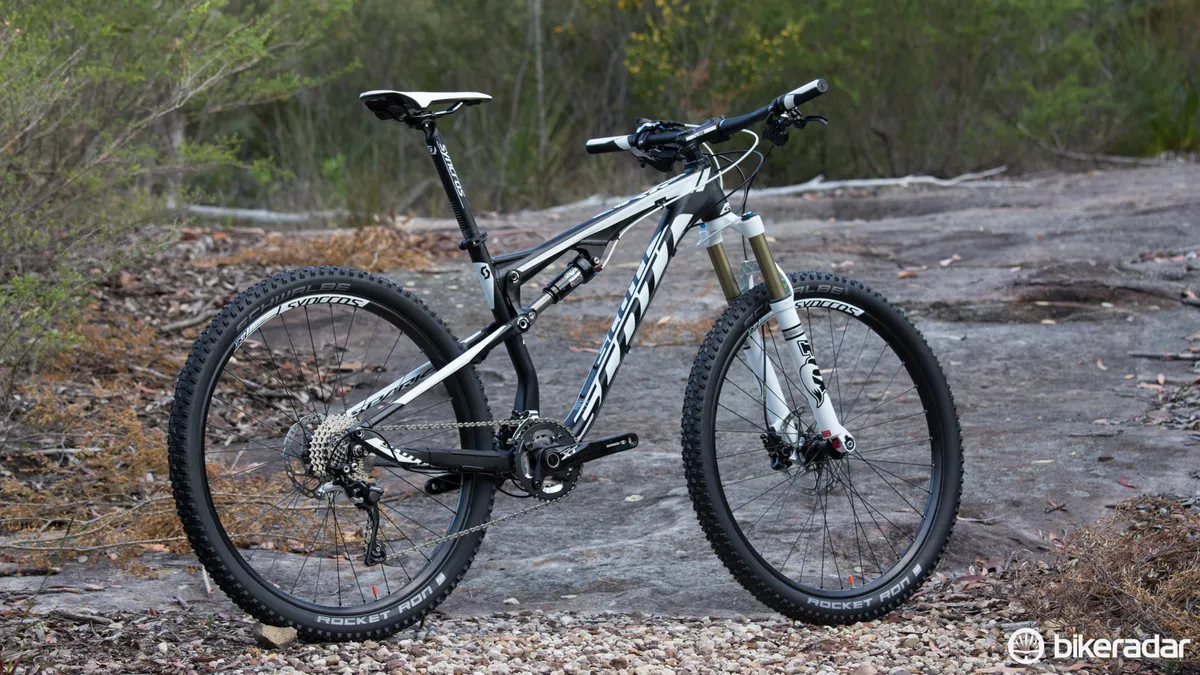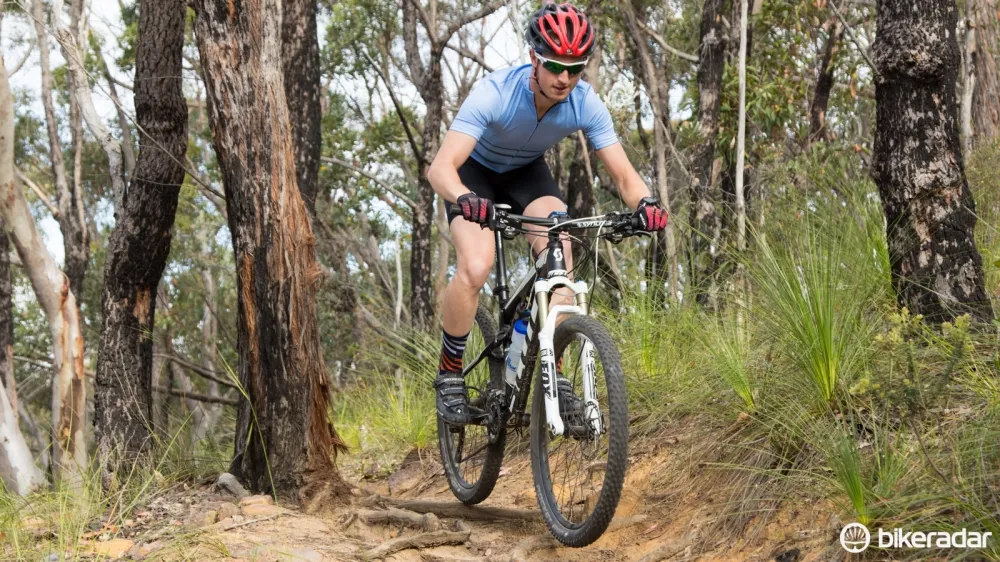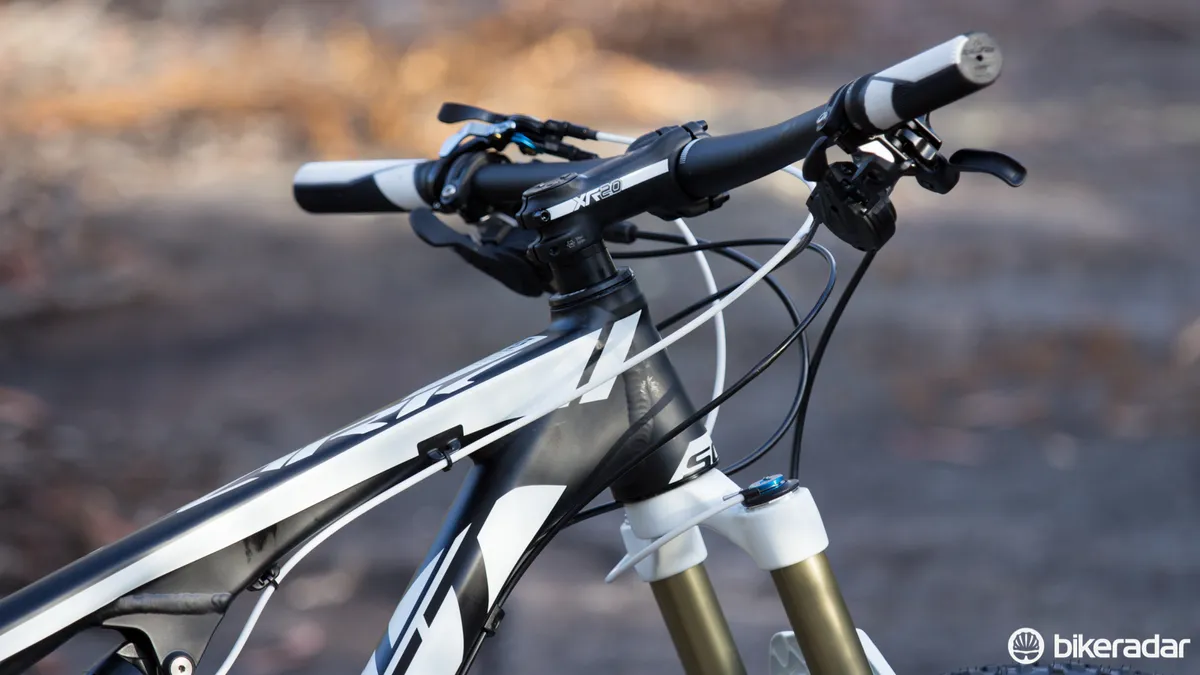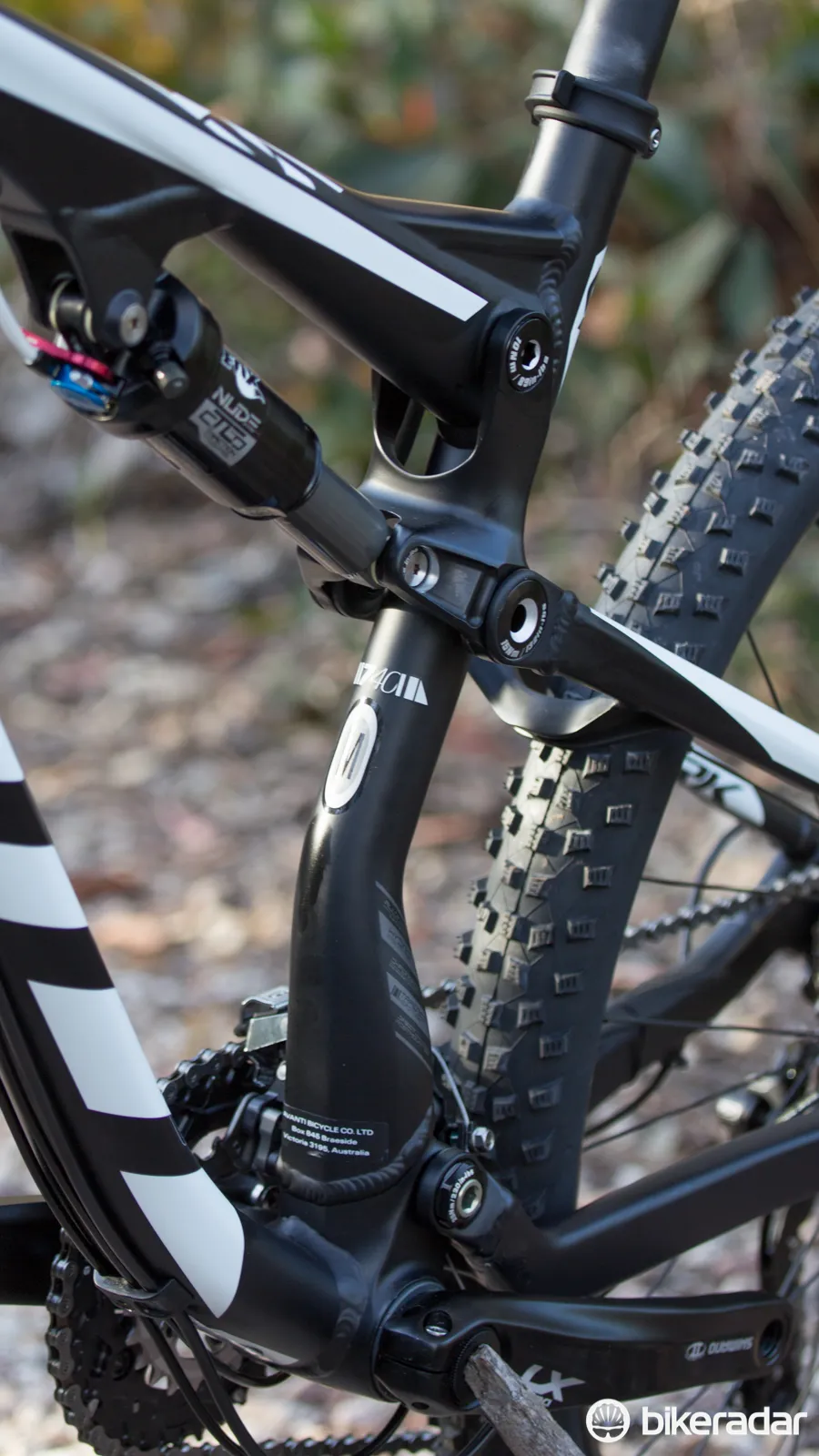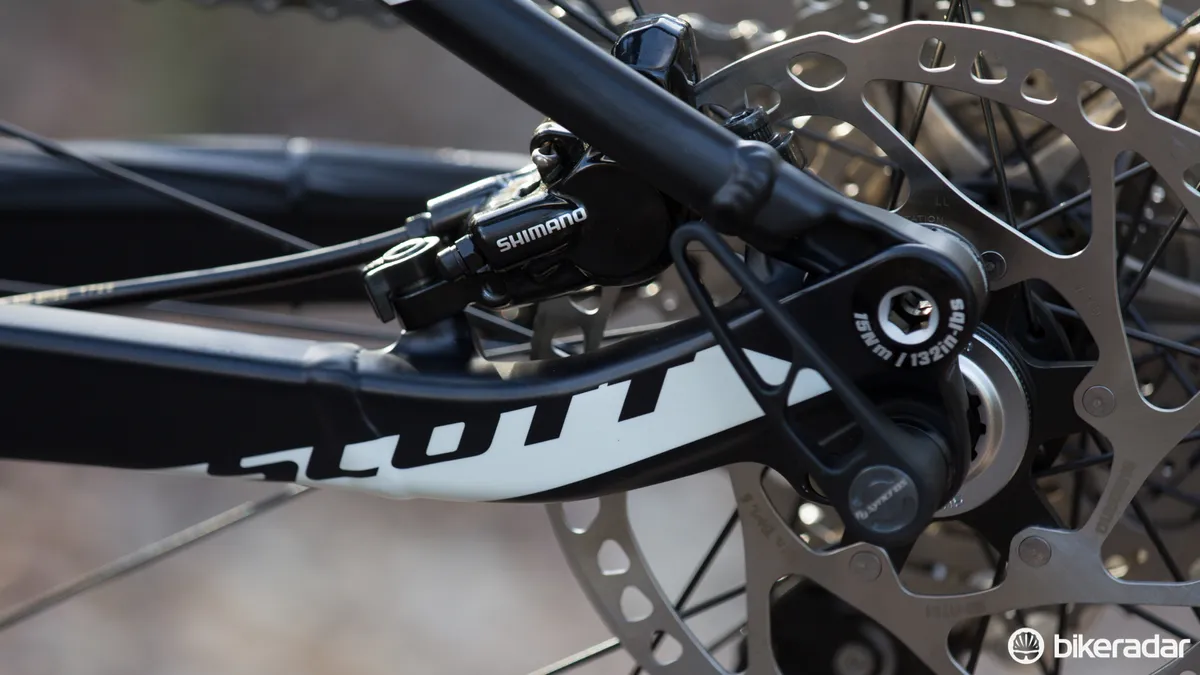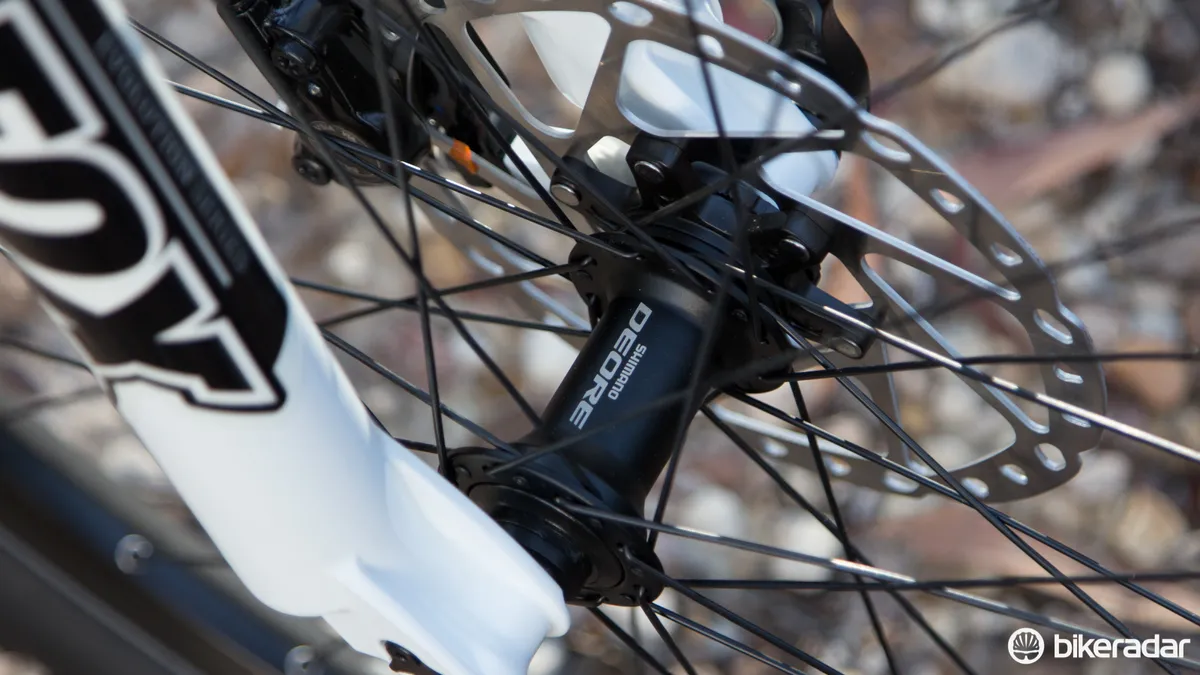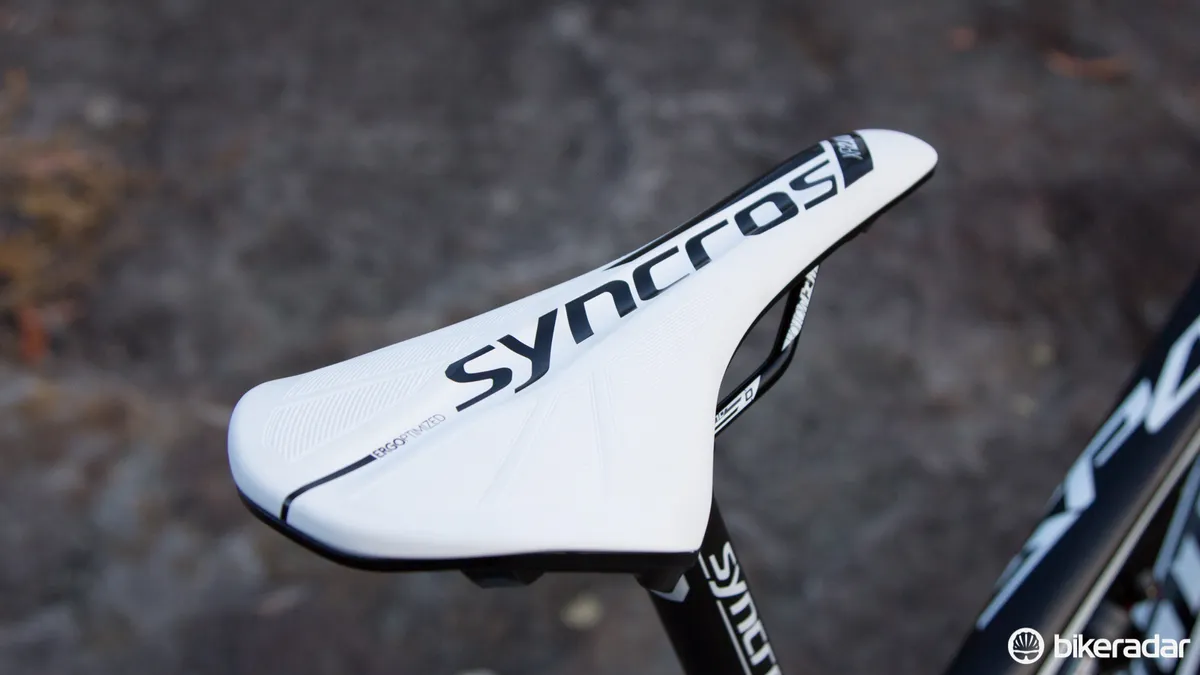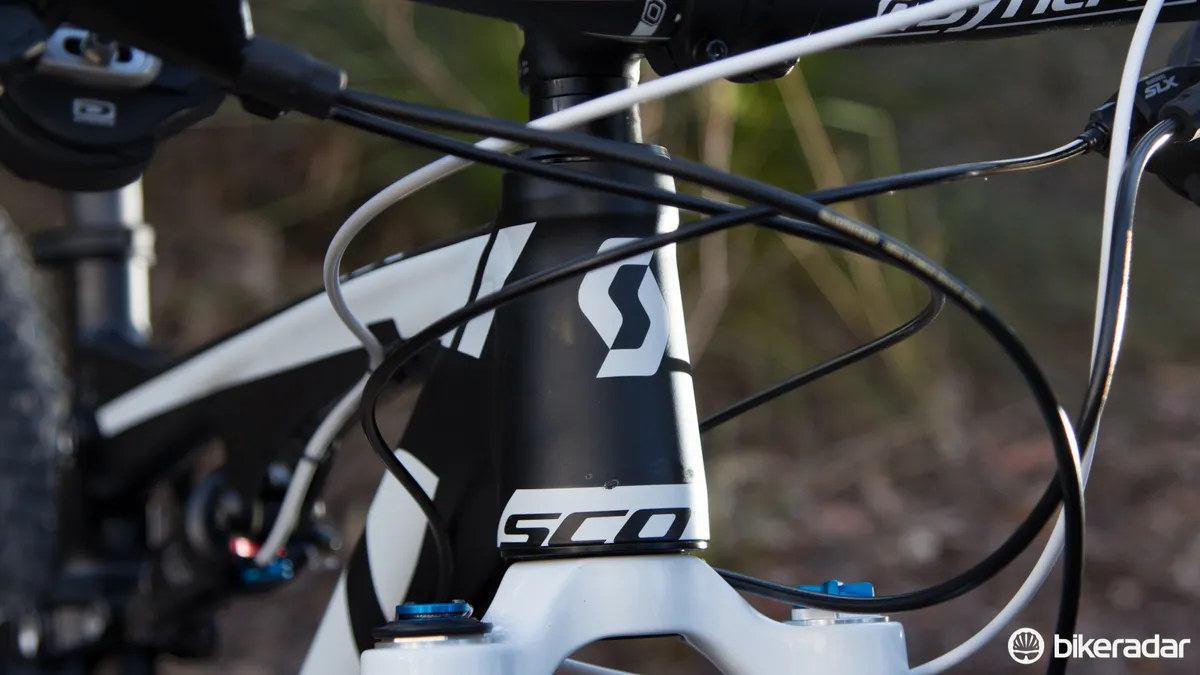The Scott Spark is one of the few marathon cross-country bikes that's available in a choice of either 29in or 650b wheel sizes. A ‘9’ in the name indicates a 29er model, and a ‘7’, as seen here, means the bike is equipped with 27.5in (650b) wheels.
Late last year we reviewed the Scott Spark 720, a 120mm dual suspension bike featuring a carbon front triangle. We found it to be far more capable on the trail than its marathon racing designation would lead you to believe.
The Spark 740, reviewed here, sits two models below the Spark 720, and uses the same suspension system and geometry. With a full aluminium frame and slightly downgraded components, on paper it looks like a good-value proposition. We hit the trails to find out.
Ride and handling: ‘suspension shifting’ for the ever-changing conditions
Despite its marathon racing intentions, the Spark 740 isn’t a twitchy or particularly racey feeling bike. Instead, it's slack head angle and 120mm travel mean it behaves like a short travel trail bike, but has the turn of speed that's needed for racing available at the flick of a switch.
It’s this switch, the TwinLoc suspension control, that defines the Spark’s split personality. It offers a three-position control of both front and rear shocks from a single shifter-type lever.
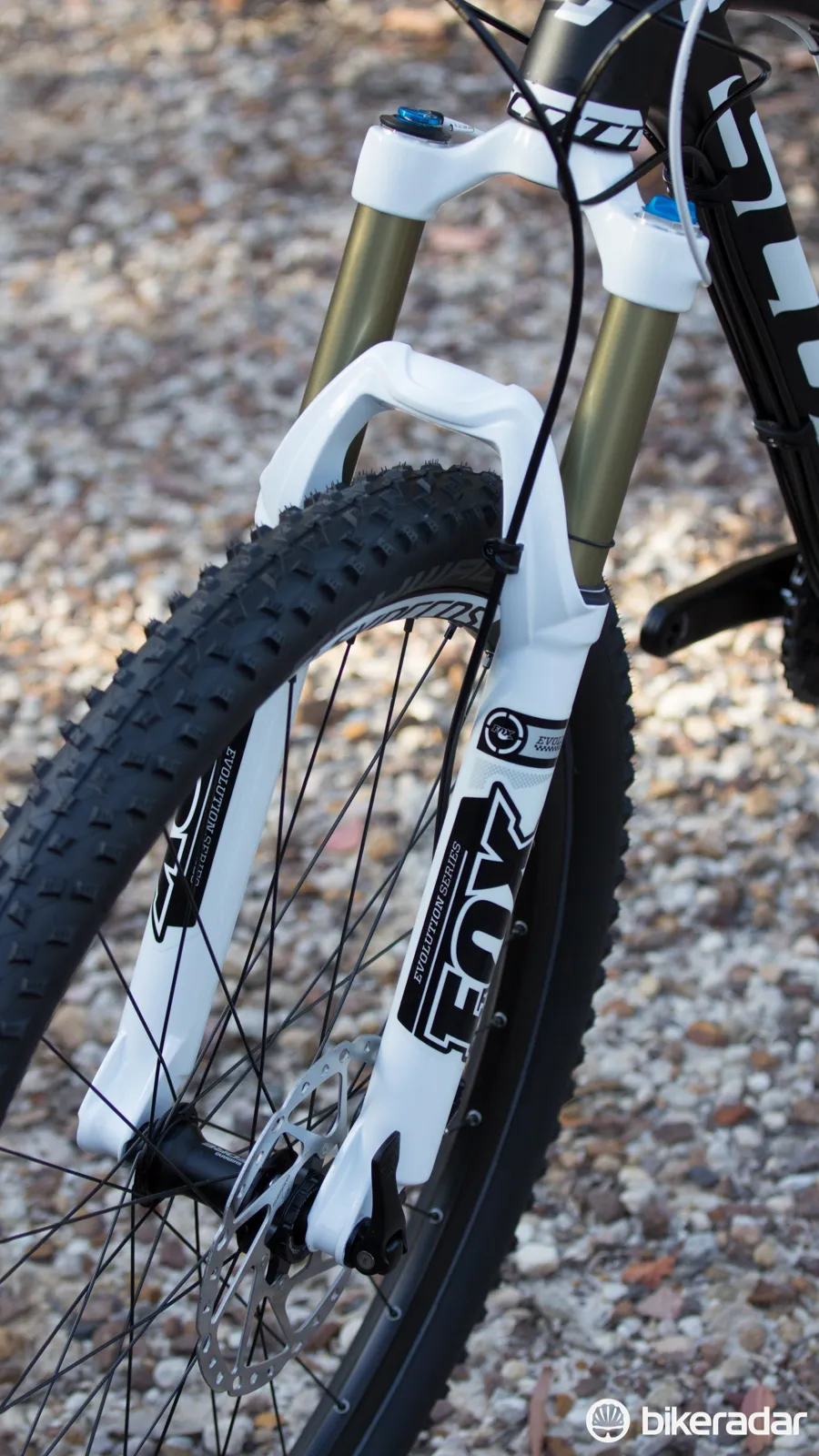
An open-bath FOX Float Evolution fork does a respectable job out front and is a well-suited match to the rear shock
Scott has traditionally used propriety rear shocks for its suspension designs and the new FOX Nude is a marked improvement on old offerings. It's well-balanced with the front FOX Float fork.
With this, the suspension setup ensures the use of the TwinLoc is near mandatory, not just an option. In the 120mm descend mode, the shock is reactive and does a great job of keeping the wheels in touch with uneven ground, but also wallows under power. While you’ll want the traction provided from descend mode on technical and loose climbs, the slightest sight of a smooth incline would have us reaching for the middle 85mm trail setting – and not for wanting our fork stiffer, but just to feel our efforts rewarded out back.
Wile the suspension is a big part of the Spark, it’s not the whole story. Another special feature is adjustable geometry, done via a two-position chip that sits at the rear shock. The lower setting drops the bottom bracket 7mm and slackens the head angle by 0.5 degrees to 68.3 degrees, something that we quickly decided to leave on to get the most from the bike in technical terrain.
Frame: quality and modern features at every angle
A quick look at the frame and you’d be pardoned for assuming it’s carbon. Wild hydroformed tube shapes, angles and asymmetries feature at every curve and corner; we’d guess the frame was designed with carbon in mind, then Scott worked out how to imitate it in metal.
The frame is nearly flex-free when pushed, with a solid one-piece rocker link reinforcing the seatstay with the main frame and a changeable thru-axle out back – 142 x 12mm as stock.
Lower down are large, asymmetrical curved chainstays and a wide and curved downtube that uses a fair amount of the BB86 bottom bracket shell. At the other end of the frame is a stout, tapered heat tube.
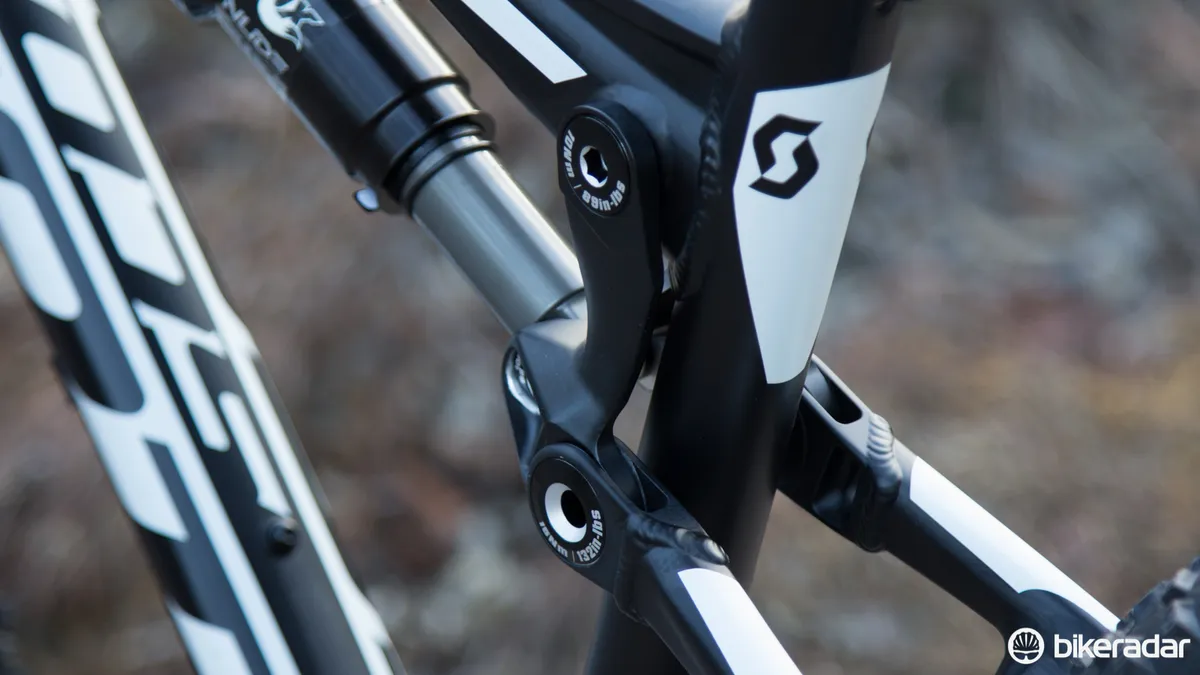
The oversized pivot hardware is light, solid and easy to work on with large hex sizes and well-marked torque guidelines
Over the carbon front-end of the models above, the 740’s full aluminium frame adds approximately 250g. Without budget constraints, we’d choose carbon, but regardless, this frame won’t disappoint.
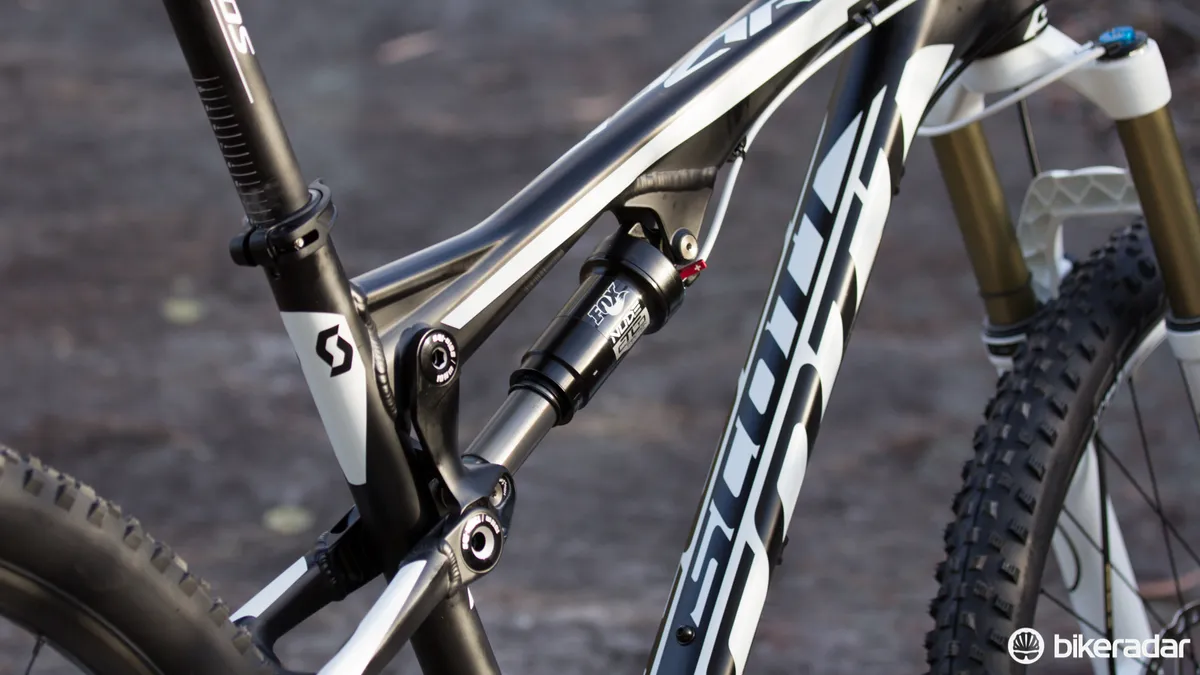
Our brand new tester did develop a creak within the pivots during our testing – we traced this to the geometry-adjust chip at the rear shock. A bit of grease in this area and we were back riding in silence
The TwinLoc technology remote is solid and positive, and although we’re not fans of adding an extra two cables to a bike, the TwinLoc does it neatly, and should be resistant to general muck and corrosion.
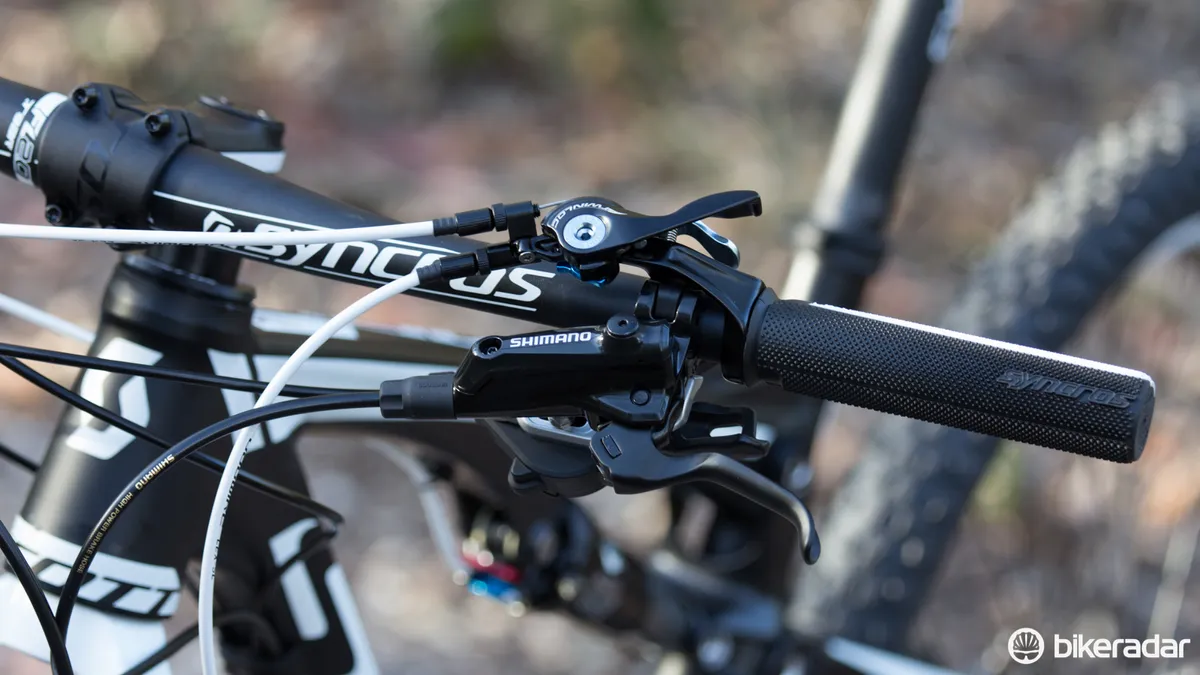
Doubling as a grip lockring, the Twinloc switch is a quality item and without doubt adds to the cost
The TwinLoc switch itself feels far more solid than previous generations, with a pronounced click and positive spring that should overcome a sticky or contaminated cable without too much fuss. It works similarly to a trigger shifter – the up and down buttons are within easy reach of your left thumb.
Regardless of how well it works, we can’t overlook the fact it adds two more cables to the bike – this alone may be a no-go for minimalist riders.
An easily accessible bottle mount is a feature that’s easily overlooked, but arguably crucial on a bike designed for marathon racing. We managed to fit a standard sized bottle within our medium sample without the need for a side-access cage.
Aesthetically speaking, despite the birds’ nest of cables out front, the Spark 740 proved popular. Its modern lines are well complemented by its striking matt black and white paintscheme.
Equipment: high quality where it counts, although we'd prefer to ditch the inner tubes
A big argument for the full-aluminium model over the carbon is the better parts specification for the lower price.
Despite the 740 using a ‘cheaper’ aluminium frame than the 720, the proprietary suspension means the rest of the bike doesn’t scream value for money. Nevertheless, the parts gave no major cause for complaint.
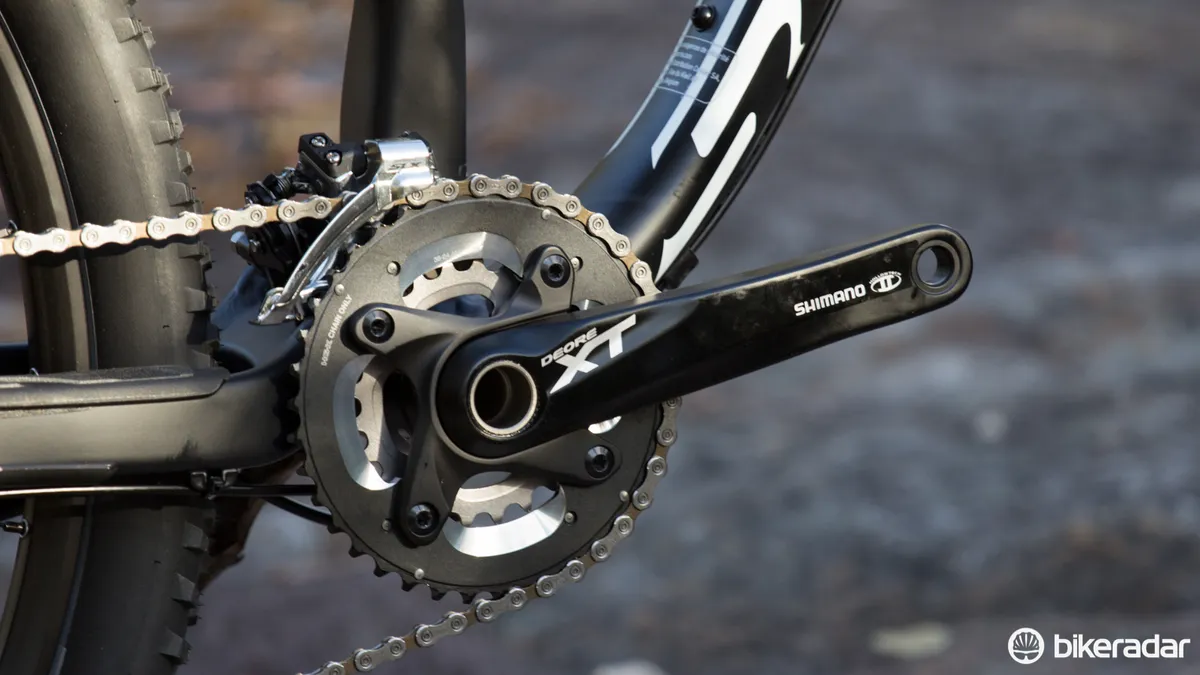
The 38/24T gearing is great for most trail conditions, but long road sections may have you wanting more
The drivetrain includes a mix of Shimano XT, SLX and Deore components. Scott has done a good job of putting the money where it counts, and the dual-ring XT cranks and clutch-equipped shadow rear derailleur performed flawlessly.
The slightly cheaper Shimano M615 brakes disc brakes and Deore hubs perform without issue, although they don't have the prestige of upper-level options. The M615 brakes don’t have the same all-out power of upper models, but kudos to Scott for including a larger front rotor for greater braking leverage.
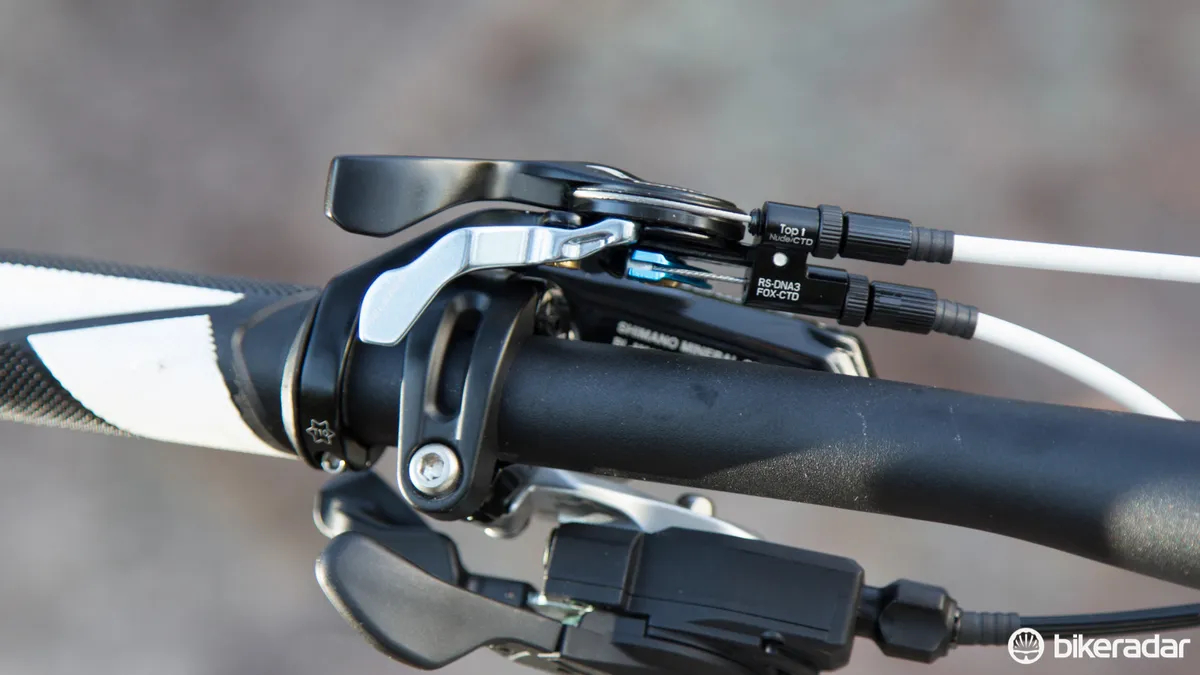
The single-clamp I-spec brake and shifter is a nice touch and helps with cleaning up the otherwise busy bar setup
Sycros components was acquired by Scott in 2012, and its parts comprise all contact points, as well as the heasdset and rims. These components continue with Syncros’ long-standing history of producing quality off-road components. The handlebar and stem add a stiff and secure connection – just watch out for the Torx bolts used in the stem.
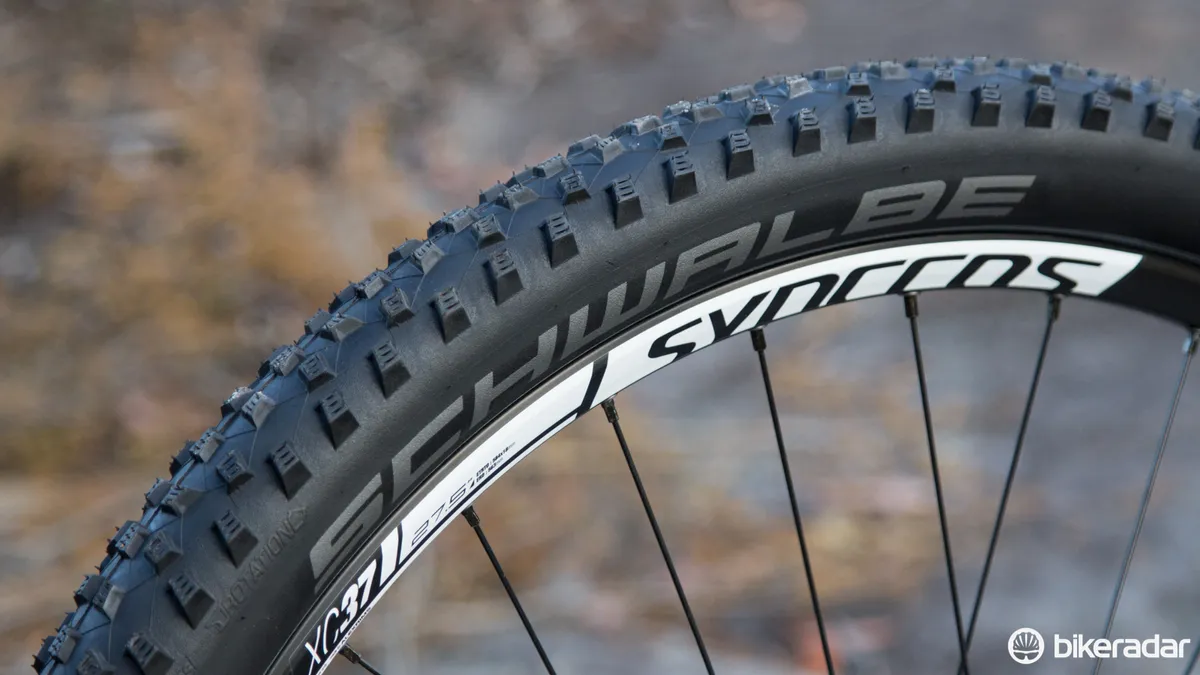
The Schwalbe 2.25in Rocket Ron tyres swell on the rather skinny rims
The rebadged Syncros rims (made by Alex rims) are quite narrow by modern standards, and neither the rim or supplied tyres claim tubeless compatibility. These rims can be turned tubeless with a conversion kit, but at this price other brands are offering setups with both tubeless-ready rims and tyres included.
There’s plenty to like about the Spark 740. It’s effectively a budget-conscience replica of the carbon models with a small weight penalty.
The 120mm travel is enough to offer plenty of fun and is well appreciated on more technical trails – this is a bike that you could easily race cross-country one day and then explore remote trails the next. While we’re more ‘set and forget’ type riders when it comes our suspension, riders who seeks instant control of their setup will be well rewarded by this ride.
Looking for a new mountain bike? Discuss it in our forum right now. Head here where you'll find invaluable advice and stories from fellow riders.

